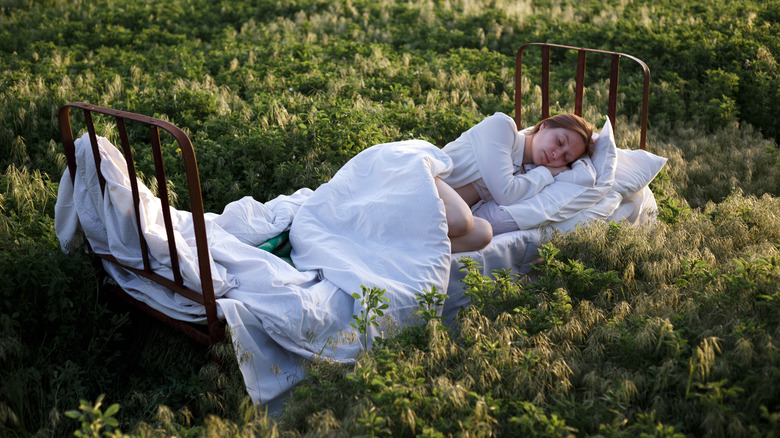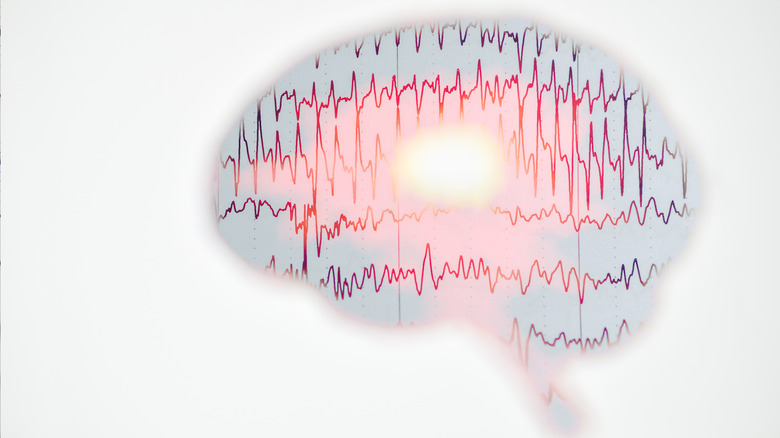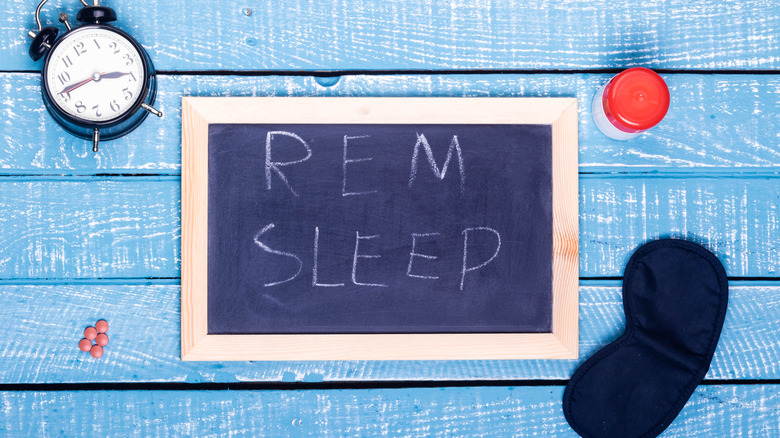What Happens To Your Body When You Sleep
As we navigate through daily life, it's easy to overlook how essential sleep is to our health, as we can often spend many nights without receiving adequate sleep. Conducting research on the purpose and benefits of sleep has become increasingly popular within the scientific community in recent years.
Despite centuries of interest surrounding dream interpretation, it wasn't until the 18th century that researchers began exploring sleep patterns in relation to health, as explained by Sleep Health Solutions. The study of sleep in this way has led to many fascinating discoveries on the subject. For instance, Dr. Nathaniel Kleitman founded the first sleep laboratory where he studied the detrimental effects of chronic sleep deprivation during the 1920s. Additionally, a German psychiatrist by the name of Hans Berger was the first to record brainwave patterns during sleep and wakefulness using electroencephalography in 1924.
One subject of interest within sleep research is what happens to the body during sleep. Since sleep occupies such a large portion of your day, you may have wondered what your body does when it sleeps. Luckily, science has gained some insight into how the brain and the rest of the body function while sleeping.
What happens to the body during non-REM sleep?
A single sleep cycle takes your brain through several unique stages. In particular, sleep has four distinct stages, per the Sleep Foundation. The foundation explains that cognitive, mental, and physical health can be negatively affected when the brain is unable to cycle through these stages.
Stage 1 of sleep lasts for only a few minutes and is when the body is dozing off in preparation for sleep. During this stage, the body begins to slow down and there are light changes in brain activity as well as potential involuntary twitches. The body will then enter stage 2 of sleep, which leads to more changes within the brain and the rest of the body. Brain activity during this stage quiets down, although there are short spikes of activity that prevent someone from being awoken by stimuli in their environment. Body temperature and heart rate drop, and breathing slows down as the muscles relax. As explained by Healthline, these two stages of sleep are considered light sleep.
It's more difficult to wake someone up during the deeper stage of sleep, which is known as stage 3. The Sleep Foundation reports that the body becomes even more relaxed, as breathing, muscle tone, and heart rate will be at their slowest. There's a noticeable delta wave pattern in brain activity during this stage, and researchers believe that deep sleep is important for the immune system, as well as for recovery and growth of the body.
What happens to the body during REM sleep?
Rapid Eye Movement Sleep (REM sleep) is the stage of sleep that is most commonly associated with dreaming. The Sleep Foundation reports that dreaming can happen during any stage of sleep, although it's most common and vivid during REM sleep. The foundation explains that brainwave patterns during REM sleep and non-REM sleep are noticeably different from one another, and dreams during REM sleep can be more bizarre and fanciful.
This stage of sleep is unlike the others in that brain activity spikes, rather than slowing down, as explained by the Sleep Foundation. In fact, brainwave patterns during REM sleep are similar to brainwave patterns during wakefulness. During this sleep stage, a temporary process called atonia causes the muscles to become paralyzed, instead of just relaxing. As a result, only the eyes and breathing muscles are not paralyzed during this stage, which researchers speculate may be in order to prevent your body from moving based on the dream's contents. In addition, the Cleveland Clinic shares that rapid eye movement occurs during this stage, as well as a higher breathing rate and heart rate.
REM sleep is believed to play a critical role in the cognitive functions of learning and memory consolidation, emotional processing, and healthy brain development, according to the Sleep Foundation.



